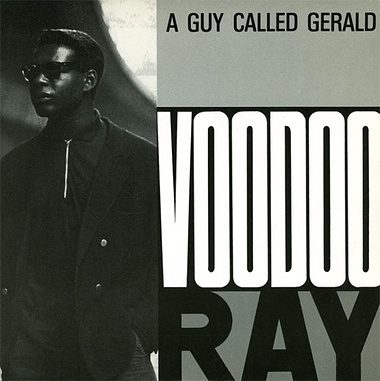
Together acts such as Baby D and A Guy Called Gerald created tracks that defined a scene and a generation. But what happened to them after the party ended?
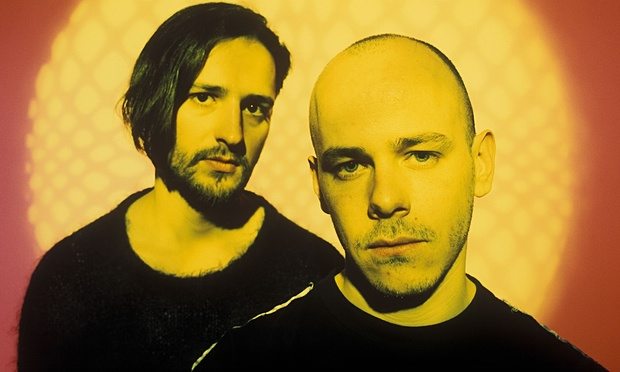
The homegrown stars of acid house looked as if they were going to be around for years to come – they’d reshaped British pop, turning the charts different colours by bringing the sounds of Chicago and Detroit to the UK. But it didn’t work out like that: the names that peppered the top 40 as house spread its tentacles across music soon disappeared from the consciousness of the general public. Some went back underground, others took on new guises and made new kinds of music, others went off and did something different entirely. We tracked down some of the first generation of rave hitmakers to find out what happened next:
Gerald Simpson (A Guy Called Gerald)
“When Voodoo Ray was in the charts, I was still working at McDonald’s”
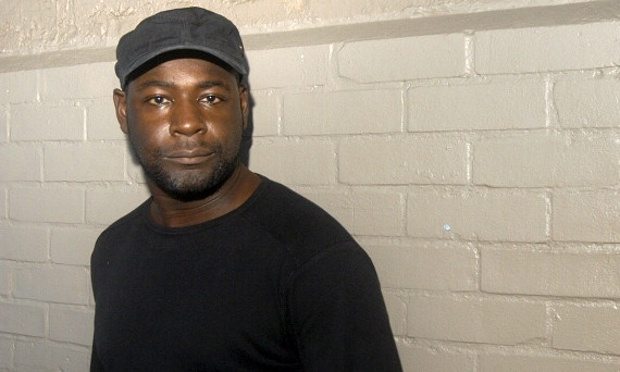
The hit: Voodoo Ray peaked at No 12 in March 1989, a year after its first release. Although it was his only big hit, Gerald remains a key figure on the electronic music underground circuit.
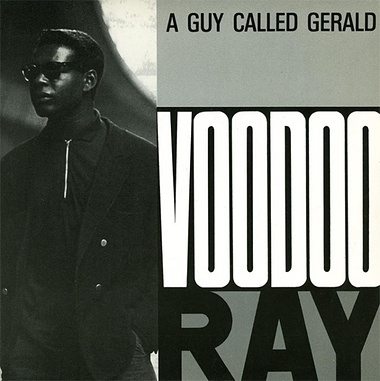
What happened next: “The house scene in Manchester at the time was really small, very specialist. The records were only coming in as imports from America and were pretty expensive. It was cheaper to make them yourself. I was really excited about the technology. I noticed there was a hypnotic element to playing the vocal line forwards and backwards at the same time – it played tricks on your ear. I used the same idea for the bassline, so you keep hearing all these phantom tones, things that didn’t really exist on the tape. I had a box of spoken-word records that I’d go through to find stuff that would fit in with the music. I always wanted to use this Derek and Clive skit [Bo Duddley] but there wasn’t much memory in the sampler so when Peter Cook said “voodoo rage” it came out as “voodoo ray”. It was serendipity – poetry, in a way. When Voodoo Ray was in the charts, I was still working at McDonald’s. There were all these excuses [about why the money didn’t come through]. I thought, something’s gone wrong here: I’ve got two tracks in the charts – Voodoo Ray and [808 State’s] Pacific State [which Simpson co-wrote] – but I’m still having to walk to the centre of Manchester from Longsight with a bag of equipment because I can’t afford to get a bus.
“So what I did was, I went to a place in the West Indies and I found some people who helped me make a charm. I decided well, ‘OK, my payment is that anyone who gets involved is going to have to pay something.’ Have I seen any evidence of the curse working? Oh, yeah. People kind of disappear. I’m not saying anything else. I warned everyone as much as I could with the name of the track.”
Paul Walden (Guru Josh)
“We pressed up 500 copies and 480 people threw it in the bin”
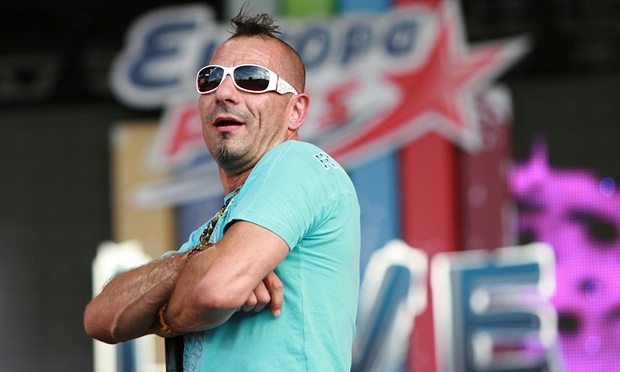
The hit: A former dental student and nightclub musican, Jersey-born Walden reinvented himself as Guru Josh and reached No 5 in 1990 with his debut single Infinity (1990s … Time for the Guru). Remixed by German DJ Klaas, it became a hit all over again in 2008.
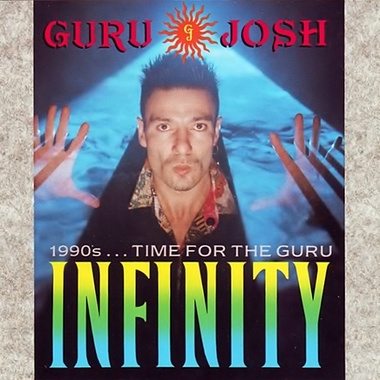
What happened next: “In 1988, I was in a rock band called Joshua Cries Wolf. I was playing a pub in London when somebody popped an ecstasy tab in my mouth. From then on, I started playing house music. A friend of mine had a warehouse party called Infinity and he gave me a few hundred quid to make some white labels for his party. So I called up Mad Mick, the saxophone player from my band, and adapted the Infinity line from one of my old rock songs. We pressed up 500 copies and 480 people threw it in the bin. Everybody said: ‘You’ve got a saxophone on it, you’re nuts – you can’t do that.’ But [Hacienda DJ] Mike Pickering played it and the rest is history.
“I loved Ibiza so much I decided to move there. I was doing my art and I also had a promotions company doing aerial photographs and banners. I had a good life so I was never really bothered about releasing another record [after the 1990 album Infinity]. Then in 2008 [German label] Big City Beats got somebody called Klaas to remix Infinity and it sold about 6m copies and was No 1 all over Europe. It was more successful the second time round. Every day that I dive in my swimming pool, I feel blessed and honoured that people bought that record. But what do I want to do for the rest of my life, keep churning out rubbish? Music has been good to me, but now I get more excitement out of setting up new businesses. I’m more like a mad inventor than a musician. About a year ago, I patented a new invention that’s being manufactured in China at the moment. It’s a big secret but you’ll know about it soon. People say it’s the next cat’s eyes.”
Garry Cobain (The Future Sound of London)
“The further we went, the more people would trip out”
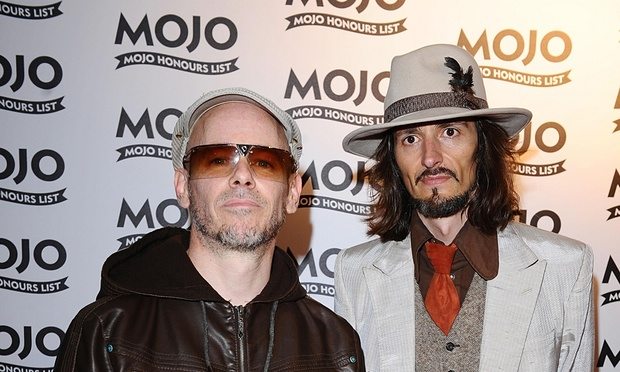
The hit: Reaching No 22 in 1992, Papua New Guinea was of the first of six top 40 hits for FSOL. In their current guise as the Amorphous Androgynous, Cobain and bandmate Brian Dougans have released several highly regarded psychedelia compilations and worked with Paul Weller and Noel Gallagher.
What happened next: “For us, Papua New Guinea was in the direct lineage of Bowie, Bohemian Rhapsody and O Superman by Laurie Anderson – the continuation of truly mindbending music, that, because it was mindbending, would switch people on. Name me another period of music when way-out instrumental music could be hits. People were talking about the deepest bassline like it was a hooky vocal. The further out we went, the more people would trip out and the more people would buy it, and that’s a complete inversion of how pop usually works. We didn’t feel like we could work with exotic musicians but we wanted to bring that level of depth into sampling, which was the ability of two skint boys in their early 20s to seem exotic and worldly without asking anybody’s permission.
“I never thought I could work with [Dead Can Dance singer] Lisa Gerrard, so sampling her on Papua was a way I could get close to the juice of greatness. I went to see Lisa play in 2004 and I had a little cry, actually. I was listening to her towering voice and I thought: I’ve never even met this woman but we’ve had this incredible, intimate collaboration. So I went backstage and introduced myself and we had a lovely moment. Probably the strangest time I’ve heard Papua was at the height of the “Who killed Lucy Beale?” saga in EastEnders recently. Also, Fiji marched out to it at the Commonwealth Games opening ceremony last year, which was pretty surreal.”
Read (and hear) more at the Guardian

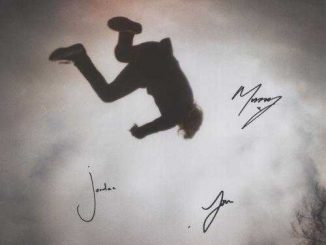
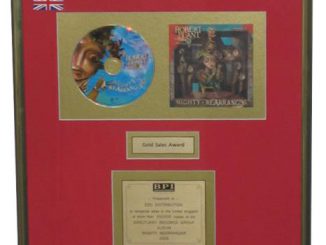

Be the first to comment